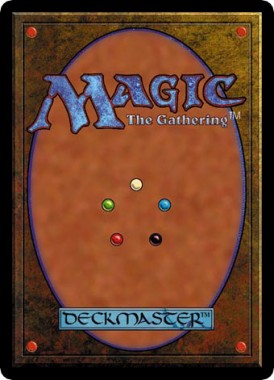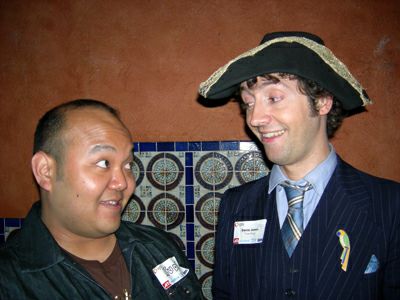GDC大会讨论话题:社交游戏利用心智不健全玩家?
我今年在GDC上的激昂陈词出人意料,你可能会因此认为我是Zynga粉丝俱乐部(Zynga Fan Club)的正式会员。不满Zynga的大多是硬核游戏玩家,他们要嘛出于嫉妒,要嘛是怕Zynga游戏的风靡会让AAA第一人称射击游戏消失。这样一来,他们以后就只能装饰小兔子,拯救消失的小旅馆。
我认为Zynga赚钱理所应当,但当游戏生搬硬套,或者令人沉溺,玩家白费金钱、时间时,游戏邦认为玩家就应该要舍弃游戏。但我并没有给Zynga或它的竞争者特别优待。我觉得社交游戏开发商应该更有道德责任感,如果他们办不到,我们就应该采用政府法规来限制他们的行为,如限制融入香烟、酒精、毒品、赌博以及其他沉溺性的物质或活动。
米切尔·斯摩曼演讲的启示
几个礼拜前,我参加了Herve Velasquez School学生组织的小聚会,主要谈论数位显示(Digitally Inclined),我以前在那教书,后来被学校炒鱿鱼。致力于游戏开发的学生们成立了一个俱乐部,俱乐部推出的作品很多,从《Magic: the Gathering》锦标赛到3D竞速比赛(学生采用的都是3D模式)。
本周,学生们邀请了米切尔·斯摩曼(Mitchell Smallman)来做演讲。米切尔是Facebook一款社交游戏的撰稿人,游戏邦发现,和其他的社交游戏一样,这款游戏的营收也相当丰厚。米切尔试图通过演讲来消除人们对社交游戏的偏见,他们认为游戏都是以盈利为首要目的。米切尔的第一个话题是“提升自我”。
整个演讲博得了满堂彩,但是就在接近尾声的时候,米切尔抛出了一枚重弹:米切尔·斯摩曼表示(他的语调清晰但略带歉意),“社交游戏的问题在于利用了心智不健全玩家”。
Whale用户缺乏健全心智
为了论证自己的观点,米切尔描述了自己游戏的whale用户。“whale”这个词来自于赌博行业,形容的是拉斯维加斯的大款们在赌桌上豪掷千金,从中换得快感。
米切尔接着谈到了社交游戏中的一些whale用户:两个金融街(华尔街)的投资银行家为了把对方挤出高分排行榜,每人挥金1万美金。游戏邦认为,我们对此虽然略有不安,还是会一笑置之。
但在谈到那些拥有大量whale用户的游戏时,米切尔变得严肃起来,他认为,这些用户在游戏中投入了大量时间、金钱,这完全没必要,因为他们不过是在消遣,但会出现这种状况是因为他们没有别的选择。游戏邦发现,一旦游戏变得乏味,或者达不到玩家的期望时,他们就会怒气冲冲地转向其他的新游戏。
米切尔认为,单从玩家论坛上的言语就可以看出,他们玩游戏的心态不够健康。
当然说到这,你可以反驳:米切尔·斯摩曼并不是持证心理医生。但只有我们能够嗅到自己对游戏的痴迷,才表示我们的心态正常。
一边倒的座谈会
带着米切尔的观点,我参加了GDC就社交游戏正确性的“辩论”:“辩论:社交游戏合理吗?”我给“辩论”加了引号是因为,和大会其他社交游戏座谈会一样,与会人士与社交游戏的裙带关系,着实很难体现会议的价值。游戏邦获悉,座谈会成员,有3个是开发社交游戏的开发商,有1个是开发了讽刺性社交游戏的学者,但毋庸置疑这款游戏卖得很好。
所以,有3个“支持”,1个略带嘲讽地“反对”。这是个辩论吗?
辩论会上唯一的反对声音来自于博格斯特(Ian Bogost),他委婉地向其他成员提出参考建议,暗示他们可能会让行业受挫。
Three Rings(《Puzzle Pirates》开发商)的首席执行官丹尼尔·詹姆斯(Daniel James)(游戏邦认为,他对于Facebook游戏应该是持反对态度,但仅仅是因为他没在Facebook上开发游戏吗?)在辩论一开始就保持缄默,他显然意识到任何瞄准Facebook开发商的批评声都会直接影射到他身上。(丹尼尔表示如果游戏太过依赖赌博伎俩,他“个人会很忧心”,虽然他也是这类游戏的粉丝,游戏邦对于丹尼尔此番言论的立场颇为不解)
直到会议快接近尾声的时候,我还在希望能看到一些火花。我在提问环节,接过话筒,稍微叙述了米切尔的whale故事后,我直截了当地问座谈会成员:社交游戏是否利用心智不健全的玩家?
提问环节打太极
Zynga的纳比尔·海特奇妙推脱这一问题:“你所指的‘心智不健全’是?”
哈哈。这是语义学的辩论吗?我认为,“就是精神不正常,就像抑郁症、精神分裂症或者强迫症之类的。”
纳比尔射出了另外一箭。“我不明白你的问题?”
我复述道:社交游戏利用或者甚至促使玩家精神异常,鼓励他们花过多的时间、金钱在游戏上吗?
座谈人士还是给了敷衍的答案。游戏邦了解到,纳比尔代表座谈会成员重新把心智不健全定义“粉丝情结”。“我小时候也收集很多连环画册,那我有精神病吗?”让我失望的是,博格斯特枉为座谈会的反对意见代表,竟然为纳比尔说话(希望对方感激涕零),他反问道:我们对于流行文化的热爱不也几近疯狂吗?
游戏开发商助长疯狂玩家
虽然我的问答时间结束了,但这个问题值得我们深思。为什么有些人无法理智看待一个令人沉溺的社交游戏,我认为这是因为游戏侵蚀了他们的时间、金钱和心智。
当然心智正常的游戏开发商都不会劝玩家少玩游戏,少花钱。毕竟这些玩家是他们的whales。这些用户让他们的用户人均收益一路飙升,收入激增。社交游戏开发商会只会努力吸引(甚至创造)更多的精神失常玩家,因为只有他们才会失去理智,把钱花在根本不存在的东西上。
探索解决的办法
所以,问题是:政府需不需要规定Zynga、Playdom等公司在玩家超出了某一限度时,限制他们的消遣时间和消费金额?或者政府完全置身事外,让这些公司依照自己的道德准则规定限度?
我们控制吸烟、喝酒、毒品和赌博,并制定了相关的法规,但游戏邦发现,我们并没有把购物狂抓起来坐牢。玩家不就是在线购物狂吗?
换位思考!我们没有跟踪实店购物狂,但是我们监测在线玩家的一举一动,这难道不就是区别所在吗?我们对他们的一举一动了然于心,难道我们没有义务阻止他们伤害自己吗?(本文为游戏邦/gamerboom.com编译,转载请注明来源:游戏邦)
Do Social Games Exploit the Mentally Ill?
by Ryan Creighton
[this article is cross-posted from the Untold Entertainment blog, which is awesome]
From reading my surprise guest rant at GDC this year, you might think i’m a card-carrying member of the Zynga Fan Club (a club which forces you to re-confirm membership every fifteen minutes, and which sells you an auto-re-confirmation cantelope for $2).
A lot of what motivates people to gripe about Zynga stems from either jealousy, or the fear by core gamers that Zynga will become so popular that their precious triple-A first-person-head-exploder games will fade from existence and they’ll be forced to decorate bunnies and rescue little lost restaurants for the rest of their lives.
i think the money Zynga makes is well deserved, and that players should be able to decide for themselves when a game becomes too rote or too addictive without it offering them enough value for their time or dollar. But i don’t give Zynga or its competitors a license to exploit. There’s one area in which i feel that social game developers need to act far more ethically, and if they fail to do so, i may even advocate the same type of government regulation that limits the use of tobacco, alcohol, drugs, gambling, and any other addictive substance or activity.
A Moment with Mitchell
A few weeks back, i was at a very small gathering of students at the Herve Velasquez School for the Digitally Inclined, where i used to teach until they fired my ass. The game development students run a club, which offers everything from Magic: the Gathering tournaments to 3D speed modeling competitions (in which the students use all three dees).
This particular week, the students had invited Mitchell Smallman to speak. Mitchell is a writer for a social game on Facebook that’s raking in money left right and centre, as Facebook games are wont to do. Throughout his talk, Mitchell tried to dislodge the students from their biases against social games, and making games (of any stripe) with profit as the main intent, his first bullet point being “get over yourself.”
This was all fine and dandy. But toward the end of Mitchell’s rant, he dropped a megaton bomb: Mitchell Smallman said, in a clear but apologetic voice, “the problem with social games is that they exploit the mentally ill.”
Going Off the Whales on a Crazy Train
To explain himself, Mitchell began describing his game’s “whales”. This is a term borrowed, uncoincidentally, from the gambling industry, which decsribes enormously rich people who jet in to Vegas, drop a disgusting amount of cash at the tables, and jet back out again having had, one supposes, tons of fun.
Mitchell talked about some particular whales in his social game: two Bay Street (Wall Street) investment bankers who were competing to knock each other off the high scores list, and in doing so, dropped over ten grand apiece. We had a good, if nervous, laugh over this.
But Mitchell’s tone turned serious when he confided in the group that a good number of the whales he sees are actually people who spend an alarming amount of time in the game, and who spend an enormous amount of money not necessarily because they’re having fun, but because they feel they have to. These are the first people to angrily harass the live team when the game is down, or when something doesn’t work as they expected it to.
And simply from the timbre of their forum banter, Mitchell said he could tell these folks weren’t of sound mind.
At this point, of course, you can interject that Mitchell Smallman is not a licensed psychologist. But come on, friends. We regular people can smell crazy on our own just fine. If we couldn’t, we’d all be wearing Snuggies out on the street like they’re haute couture.
Let’s Agree to Agree
With Mitchell’s confession in the back of my brain, i attended a GDC “debate” on the validity of social games, titled “A Debate: Are Social Games Legitimate?”. i put “debate” in dick quotes because, like many of the panels in the conference’s social games discipline, obvious croneyism kept the session from being truly worthile. The panelists were three developers who made social games, and one academic who had made a satirical social game but was nonetheless doing well by it.
So that’s three “fer”, and one sardonically “agin”. That’s supposed to be an argument? That’s like asking four members of the Wu-Tang Clan to debate the merits of “peein’ on bitches.”
The debate unfolded with all the ferocity of a sorority slumber party pillow fight, with the only true opposition coming from Ian Bogost, who gently massaged the other panelists with soft suggestions of how they may be gently bruising the industry, if you please.
Daniel James, CEO of Three Rings (Puzzle Pirates), who i figured was supposed to be quasi-oppositional (merely because his game wasn’t on Facebook?), clamped up pretty early in the debate when he very visibly realized that any criticism leveled at the Facebook developers could easily be aimed squarely at him, and at point blank range to boot. (Daniel said he would be “personally distressed” if his game relied too heavily on gambling tricks, and despite me being a fan, i wondered what planet he was on? Puzzle Pirates hosts regular POKER MATCHES, ffs)
By the time the back-patting was over and the session had ended, i was still hoping to see a little fur fly. i took to the mic during the question period (as i do), and laid the groundwork with Mitchell’s initial whale stories. Then i asked the panelists point blank: do social games exploit the mentally ill?
Getting the Heck Out of Dodge
Nabeel Hyatt from Zynga responded with a classic dodge: “What do you mean by ‘mentally ill’?”
Ah. Would this be an argument over semantics?
“You know – mentally ill,” i said. “Like manic-depressive, schizophrenic, or obsessive-compulsive. That type of thing.”
Nabeel gave it another shot.
“I … don’t understand the question?”
i reiterated: were social games primed to exploit, or even promote, players’ mental illness to encourage them to play more often and to spend more money than they really should?
What followed was a bent-over-backwards dodge of Matrix-esque proportions. The panelists, primarily Nabeel, began by redefining mental illness as “fandom”. “i used to collect a ton of comic books when i was a kid,” said Nabeel, “was i mentally ill?” To my dismay Ian Bogost, in what i saw as an abuse of hisrole as the panel’s sole devil’s advocate, came to Nabeel’s aid, asking (with patronizing pedagogy) whether enthusiasm for popular culture didn’t border on madness?
Heavily Medicated Beatlemania
My time at the mic was up, but i thought No, you creeps – i’m not talking about Bieber fever here … i’m talking about the kind of people you watch every week on Hoarders. Actual, real people who can’t, like the rest of us, reason their way out of playing an addictive social game because it’s eating up too much time, money, and sanity.
Of course, no social game developer in his right mind would suggest that these types of people need to be limited in their play time and spending. These are their whales, after all. These are the people pushing up their ARPU and scoring them the cash. If anything, social game developers would do well by attracting (or even CREATING) more mentally ill players, because only someone out of their mind would spend real money on things that don’t really exist (as the panel’s moderator Margaret Robertson suggested, jokingly).
Your Stand on Instanity
So, the question: should companies like Zynga and Playdom be regulated by the government to limit time and money spent when players cross a certain activity threshhold? Or should the governemt stay out of it, and should these companies voluntarily develop these limitations borne naturally of their own corporate ethical policy?
And if these companies continue to be left to their own devices, will these innate ethical practices ever emerge?
We regulate and legislate smoking, drinking, drugs, and gambling, but we don’t throw shopaholics in prison. Aren’t these people just online shopaholics?
COUNTERPOINT! Isn’t the key difference that we’re not tracking the every move of brick-and-mortar shopaholics, but we ARE tracking every move of our online players? Since we already know everything they’re doing, isn’t it incumbent upon us to act to prevent them from harming themselves?
REBUTTAL! Die in a fire, Ian Bogost! (panelist Curt Bererton tears his shirt open and leaps across the table, his splayed fingers aimed at Bogost’s tender face)
Moderator: FINISH HIM!
Erm … sorry about that. i got carried away. Knowing that social games aren’t leaving any time soon, let me know if you think social game developers should be externally limited, whether they should be self-limiting, or whether they should be free to gouge as much time and money from as many people as they like, crazy or sane, as our God-given free market allows. And also, please let me know who you think would win in a bare-chested pit fight between Ian Bogost and Curt Bererton. i’m writing the Bogost/Bererton slash fiction as we speak.(Source:Gamasutra)









































 闽公网安备35020302001549号
闽公网安备35020302001549号